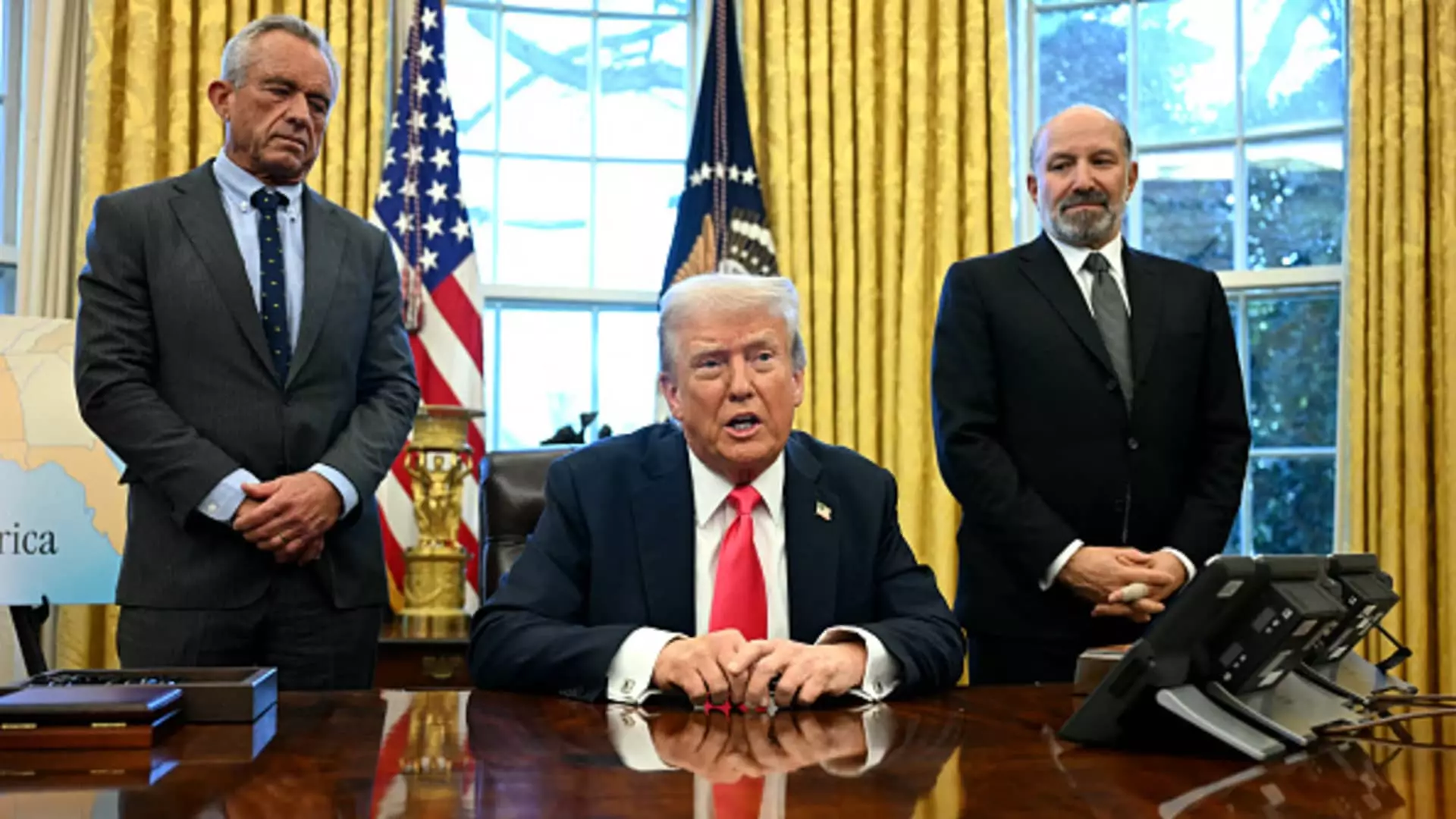The recent appointment of Robert F. Kennedy Jr. as Health and Human Services Secretary raises critical concerns about qualifications and the potential impact on public health safety. Analysts from Cantor Fitzgerald have boldly asserted that Kennedy, a well-known anti-vaccine advocate, lacks the expertise necessary to oversee an agency pivotal in safeguarding the health of the American populace. Their unreserved condemnation highlights the perilous implications of leadership decisions that may prioritize ideological beliefs over scientific consensus and rational policymaking.
The public perception of health institutions hinges on trust and credibility. When controversial figures like Kennedy take up office, they not only pose a risk to vaccine confidence but also jeopardize the foundational principles of science-based health policy. A health agency should be led by those who prioritize public welfare and trust in sound medical practices rather than individuals who endorse conspiracy theories and favor unproven remedies. Especially in an era where misinformation spreads rapidly across various platforms, it is crucial for public figures in health to maintain a strong commitment to evidence-based protocols.
The Fallout of Misinformation on Public Health
Kennedy’s skeptical stance toward routine vaccinations, particularly the measles, mumps, and rubella (MMR) vaccine, has alarming implications for public health. His views threaten to deter parents from immunizing their children, a direct risk that can unleash preventable diseases back into communities. The resignation of Peter Marks, head of the FDA biologics division, signals deep unrest within the health establishment regarding the direction of public health leadership under Kennedy. Marks’ departure marks a significant loss of expertise and ways of thinking that are vital to mitigating health crises effectively.
The analysts from Cantor Fitzgerald have rightly pointed out that embracing anti-vaccine rhetoric can have catastrophic consequences. The question arises: how many unnecessary health-related deaths are acceptable before authorities act? Recent tragic incidents linked to measles outbreaks underscore the real-world ramifications of such dangerous ideologies infiltrating public health platforms. To entertain discussions that dilute scientific inquiry in favor of debunked myths is not just negligence; it’s a blatant disregard for the lives at stake.
The Economic Ramifications of Leadership Choices
The fallout from Marks’ resignation reverberated throughout Wall Street, showing the interconnectedness of public health leadership and economic stability within the biotechnology sector. Stocks of major vaccine manufacturers like Moderna and Novavax suffered significant declines, with shares plummeting more than 8%. Stock prices often reflect deeper public sentiment and trust in health policies—when top leaders resign in protest, it sends a clear signal of instability and concern within the healthcare system. This connection between market performance and public health policy illustrates a complex and often tumultuous relationship, one that will significantly affect investments in therapeutic developments.
Financial analysts may claim that stock movements are merely a response to boardroom decisions rather than moral or ethical considerations. However, that view minimizes the larger context: public health and economic health are profoundly intertwined. Effective health policies directly affect community well-being and, consequently, economic dynamics. Thus, decisions made within the HHS bearing on public trust can have far-reaching effects, forcing stakeholders to reconsider their investments in health-related sectors.
The Urgency of Science-Based Health Leadership
As society finds itself once again grappling with vaccine hesitancy exacerbated by misinformation, the urgency for competent, science-driven leadership has never been clearer. The ongoing research into the tenuous links between vaccines and autism—propelled by voices like Kennedy’s—illustrates a fundamental misunderstanding of scientific method. The simultaneous promotion of misguided “alternative” remedies undermines the integrity of established medical practices while potentially endangering vulnerable populations.
The landscape of public health is evolving, but it must be grounded in established science and guided by experts who understand the complexities of epidemiology and human health. Allowing anti-vaccine narratives to gain traction within critical health institutions is akin to navigating a ship without a captain—it invites chaos and risks steering towards disaster. In this light, the call to re-evaluate Kennedy’s role at HHS is not merely advisable; it’s an imperative that addresses the immediate threats to health policies essential for safeguarding future generations.

